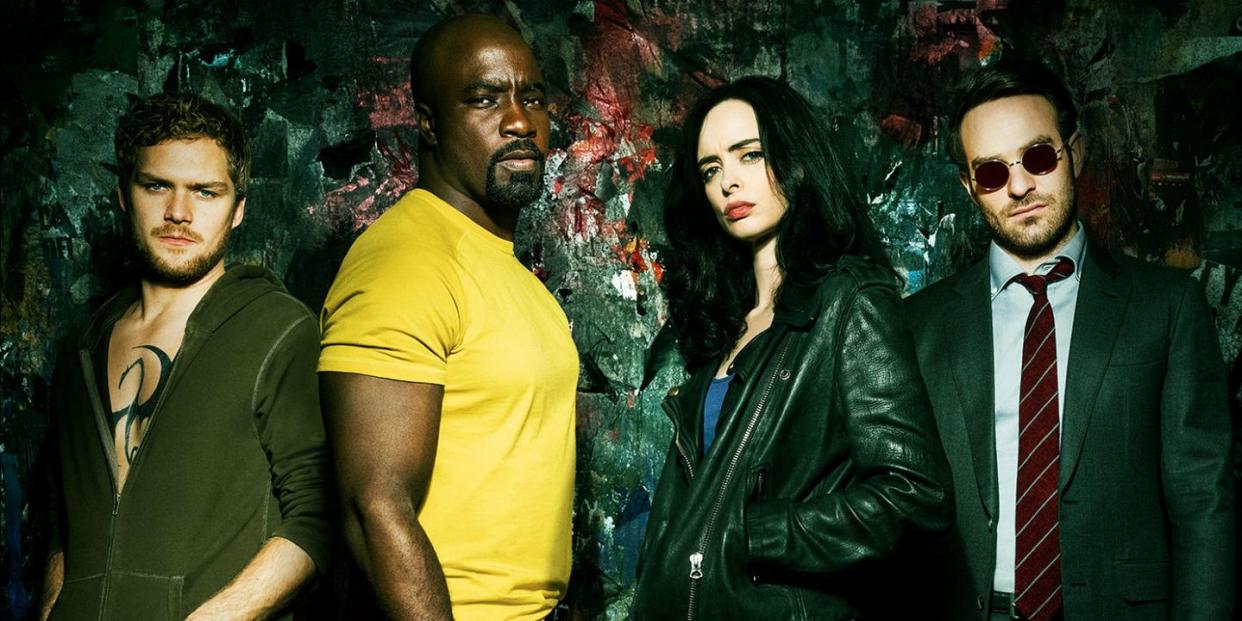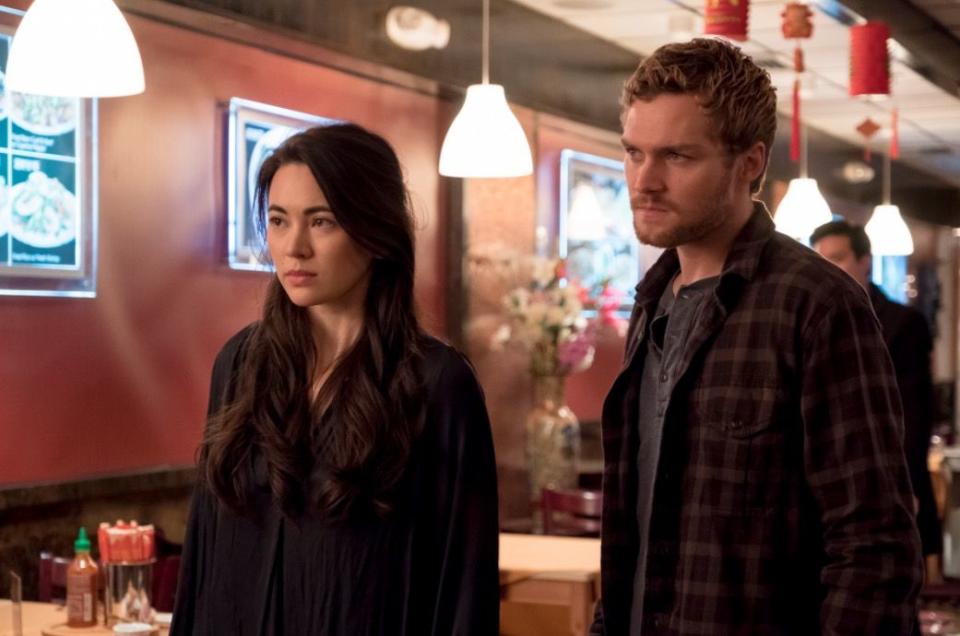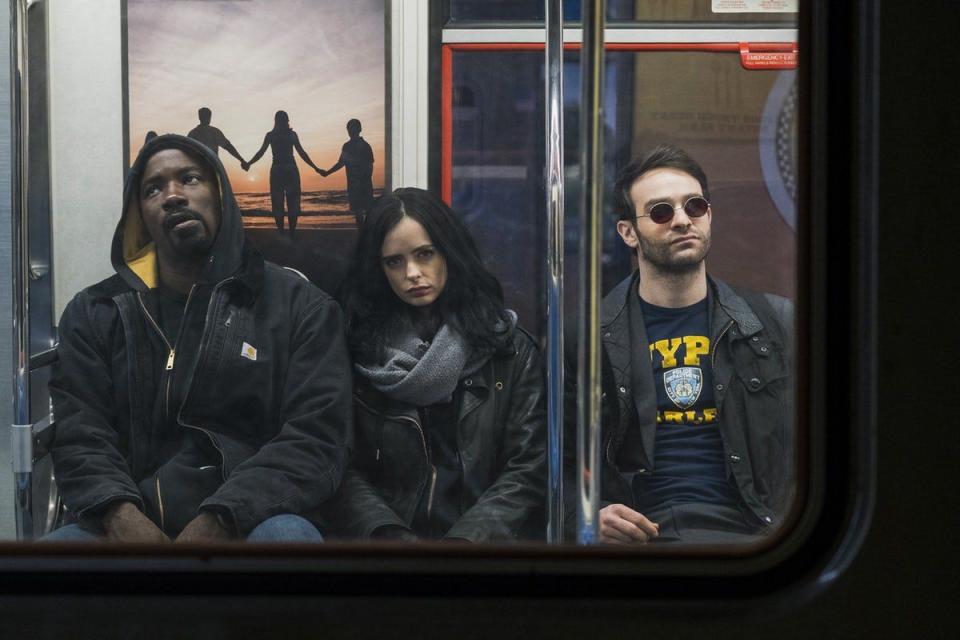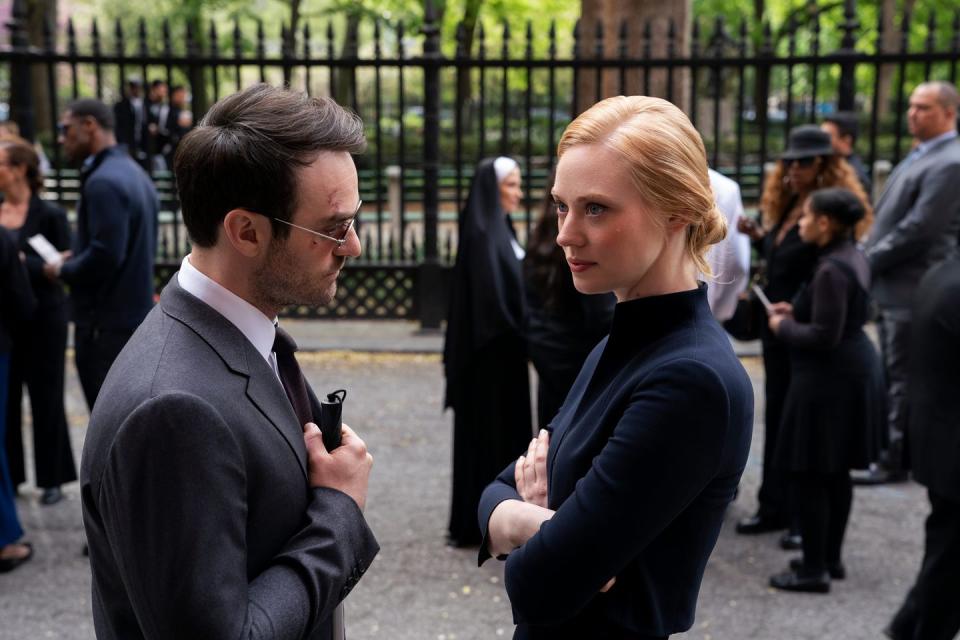What went wrong with Marvel's Netflix universe?

While the Avengers broke both box-office records and the space-time continuum in Endgame, Marvel’s street-level heroes faced an endgame of their own on Netflix as each Defenders show was dropped in quick succession.
Following the cancellation of Daredevil, Luke Cage, Iron Fist and The Punisher, Jessica Jones slinked back into the shadows with an ending that tried its best to wrap things up on short notice.
Star Krysten Ritter wasn’t surprised to discover that her hardboiled detective would outlast the others, telling The Atlantic that Jessica is always the last one standing – "Just like she would be after a long night." However, what might have surprised her and everyone else who worked on the show is how quickly the Marvel Netflix universe fell out of favour.

While big-screen ventures continue to make billions of dollars at the box office, the third and final season of Jessica Jones crawled on to our screens with little fanfare from either Netflix or fans, despite these new episodes improving on a flawed season two.
So where did it all go wrong?
It’s hard to imagine now, but just a mere five years ago, Netflix still needed brands like Marvel to prove that they could develop their own original content and race ahead in the streaming wars. Ballsier than Matt Murdock and seemingly invincible like Luke Cage, they took the decision to create a small screen version of the MCU, which was big news for Marvel too and at one point, this seemed to represent the future of superhero storytelling on screen. (Disney+ will discover whether that prophecy comes true with Wandavision, Falcon and the Winter Soldier et al.)
In the early days, fans and critics alike couldn’t get enough of those first few seasons and A-list Hollywood stars like Sigourney Weaver were soon enticed by the scale of it all too, but like one of Luke Cage’s bullet-torn hoodies, the holes soon started showing.

Although it might be unfair to single Iron Fist out, it’s safe to say that Danny Rand’s debut in the Marvel Netflix universe certainly shifted the tides somewhat, bringing bad chi to the Defenders roster. Not only did Marvel suddenly have to field concerns surrounding the casting of Finn Jones, but the critical mauling Iron Fist’s first season received also led some to question the longevity of Netflix’s experiment with Marvel.
When the long-awaited Defenders team-up finally did arrive shortly after, the crossover failed to capture the same kind of excitement that defined The Avengers’ momentous meeting on the big screen. The minor flaws that had once been vaguely apparent in each of the individual shows glaringly came to the fore in The Defenders and once magnified, these problems were no longer so easy to ignore.
Poor pacing had always been an issue, but in the early days, stellar acting and gritty fight choreography helped mask the uneven scripting that dragged shorter storylines out across 13 hour-long episodes.

Eventually though, each series soon felt more bloated than the last – particularly after The Defenders no longer unified the heroes with a common goal, slowing down their overall momentum.
It wasn’t long before the viewing figures started to drop too. Independent analytical firms found that most of the shows were losing viewers in a steady downward trend for some time before the cancellations began. It probably didn’t help either that obligatory references to the Avengers only emphasised how separate the shows were from the movies.
While the formula still worked on occasion, most notably with the critical success of Daredevil’s third and final season, the Marvel Netflix universe has lacked focus and cohesion for some time now, making it easier than ever for these heroes to be taken out completely.

However, falling ratings and a drop in quality aren’t the only reasons why Matt Murdock and co. were benched early. While Netflix are yet to confirm this, it's easy to see that the streaming service chose to end their relationship with Marvel, and therefore Disney, before the House of Mouse could kick-start their own streaming service.
Why continue promoting their rival’s superhero properties when they could just redirect the money to more Netflix originals instead?
Much has changed in the five years that have passed since Marvel and Netflix first joined forces and it’s become clear that the streaming service no longer needs this kind of boost from other brands.

Unsurprisingly, the same can also be said of the MCU. Whether The Punisher will continue punishing in a new format or not, Marvel is moving ahead with new plans to create a slate of animated and live-action TV shows for Hulu and Disney Plus as well.
Let’s just hope that the likes of WandaVision and Loki’s small-screen debut can learn a lesson or two from what went wrong with the Marvel/Netflix universe. If not, we could be looking at yet another Endgame of sorts, and sooner rather than later.
Daredevil seasons 1-3, Jessica Jones seasons 1-3, Luke Cage seasons 1-2 and Iron Fist seasons 1-2 are now available to watch on Netflix.
Want up-to-the-minute entertainment news and features? Just hit 'Like' on our Digital Spy Facebook page and 'Follow' on our @digitalspy Instagram and Twitter account.
You Might Also Like

 Yahoo News
Yahoo News 
